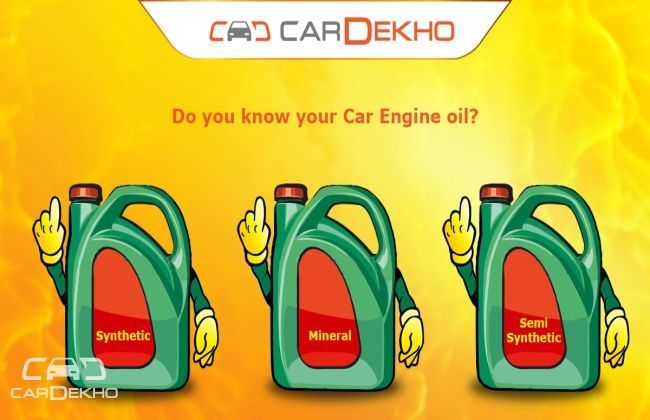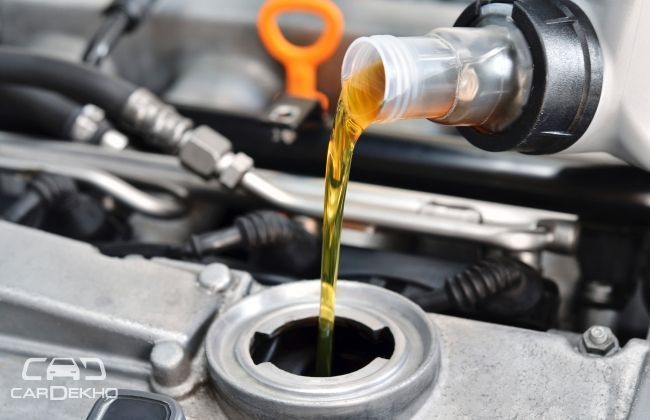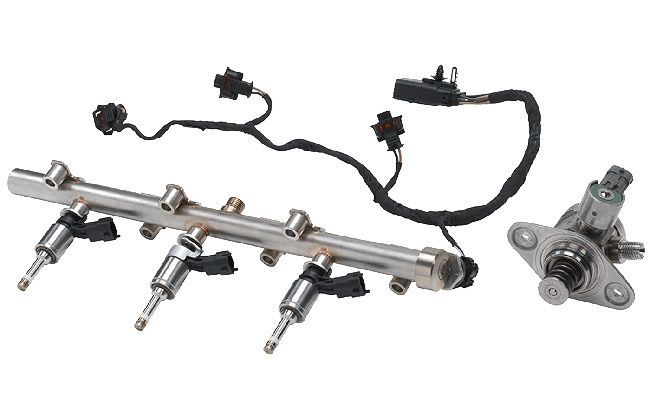Do you know your engine oil?
Modified On Dec 11, 2014 02:54 PM By Firdaus
- 2 Comments
- Write a comment
We all know that engine oil is essential for the optimal functioning of your car engine. Without engine oil your car engine may seize and not changing the oil at regular intervals may hamper the performance of your machine. The market today is filled with various brands claiming their engine oil is the best. Some of them offer plenty of options claiming to clean your engine, as well as enhance performance. Though some stand true to their claims consumers are often left confused as to which engine oil to opt for? Most lubricant manufacturers offer mineral as well as synthetic engine oils. But which of these are good for your engine? You’ll also notice that engine oil bottles have some numbers and alphabets on them. What do they mean? And how should it concern you? We decipher these questions for you.

Mineral oil is the oil extracted from the ground, rather from the ocean. It is then refined and treated to be used as engine oil.
Synthetic oils can be manufactured using petroleum components, rather than the crude oil and they can also be synthesized from raw materials. There are some synthetic oils that are derived from natural gases and then converted into lubricant oil.
Synthetic oils are engineered in labs to perform better than mineral oil. They maintain their viscosity at extremely high as well as cold temperatures which is not the case with mineral oils. Since they are chemically engineered to perform better, the oil change interval for synthetic oils is also longer. Which simply put means you can drive your car longer distances without an oil change.
Here are some more differences between mineral and synthetic oils
| Mineral Oil | Synthetic Oil |
| Is not chemically engineered | Is chemically engineered in a lab |
| Shorter intervals between oil changes | Longer intervals between oil changes |
| Cheap | Expensive |
| Does not damage the inner rubber rings causing leakage | Is sometimes known to damage the inner rubber causing minor leaks |
| Viscosity may get altered in extremely high or cold temperatures | Viscosity doesn't get altered in extremely high or cold temperatures |
If you’ve noticed an engine oil bottle it will have alpha numeric characters like 15W 40 or 5W 40. What do these mean?
To ensure you pick the right engine oil for your machine and according to your climatic conditions the Society for Automobile Engineers tests oil viscosity (the ability for a liquid to flow at a certain rate when at a certain temperatue) at 100 degree Celsius (which is the optimal running temperature of an engine) and grades it between 5 and 60. The first number indicates the viscosity of oil during startup while the second number indicates it’s viscosity at optimal engine working temperature (which is around 100 degrees)
Lower the first number means higher the viscosity and vice versa. It means if you’re using the engine oil in cold climates, the oil will be more viscous/ thicker initially and then move to a more viscous form as the engine heats up example 5W 40.
In hotter climates the engine oil will be more viscous initially but will not increase viscosity beyond the recommended numbers, example 15W 40. The W in the combination stands for ‘Winter’. The two numbers also indicate that the oil is a multi-grade oil which has been tested at two temperatures. There are single grade oils also available.
Then there is also a category of oils called semi-synthetic oils. Price wise semi-synthetic oils are cheaper than synthetic oils and as the name suggests are a blend of synthetic and mineral oils. They are designed to have some benefits of synthetic oils and may consist of 10 – 30% mineral oil .They also consist additives that help in better performance. Some engines that require semi-synthetic oil, but that doesn’t mean you can’t use fully synthetic oil in them.
So if it’s your engine life and performance that you’re concerned about, then you know what choice to make.
We hope this information has given you a better understanding of engine oils and what make – mineral, synthetic or semi-synthetic you should opt for. Happy revving.










